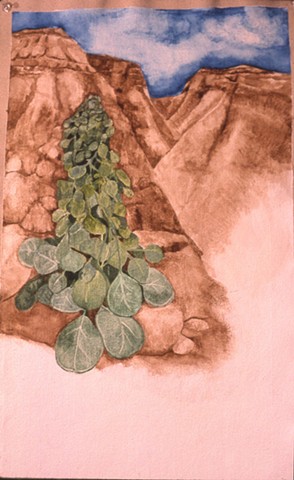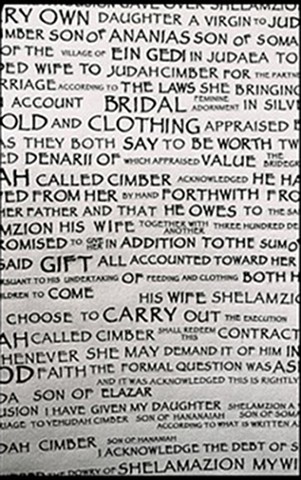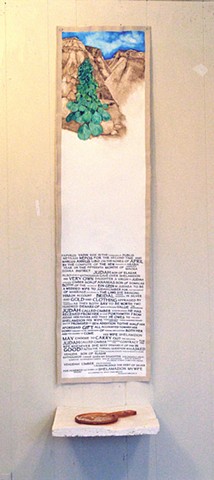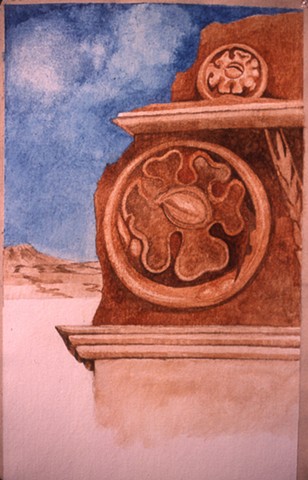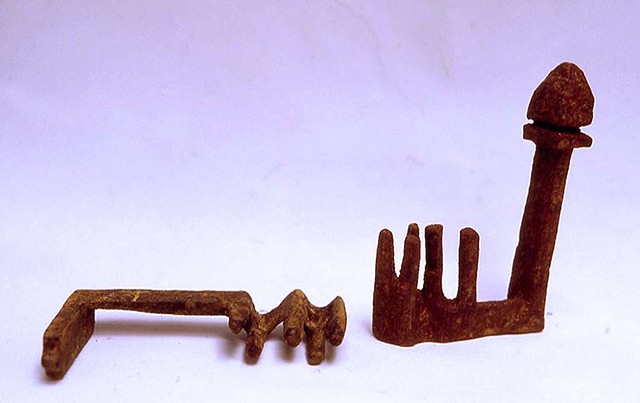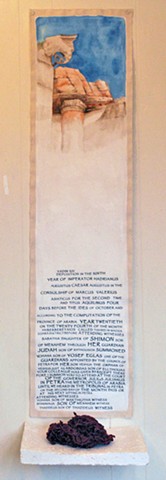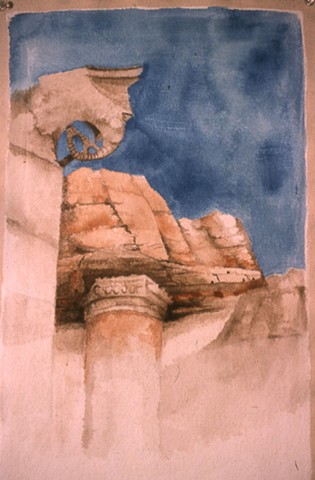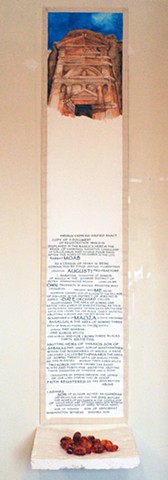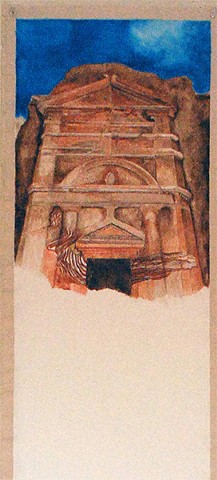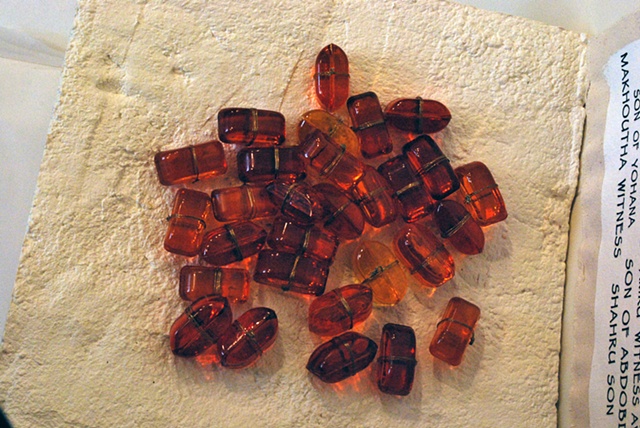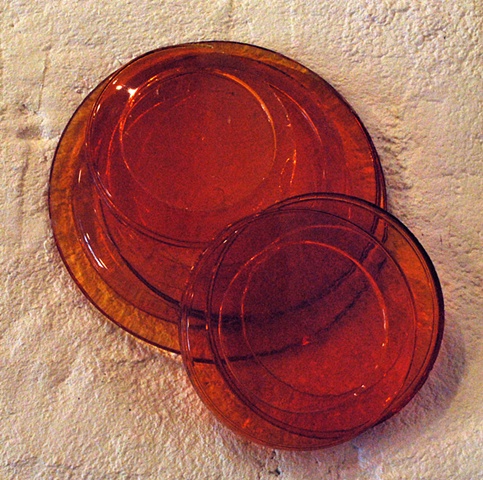Loci Papyri (mixed media - installation)
Loci Papyrii, is the second of two projects inspired by the life of Babatha, a woman from the southern end of the Dead Sea. She fled from the Romans in 134 C.E. with legal documents written on papyrus, as well as with personal items: keys, bowls, knives, pans, wool, a ‘jewelry’ box, a mirror… objects of life, hope and future. These were discovered in a cave in Nahal Hever in 1961.
All this happened against the stunning landscape and singular agricultural conditions of the Dead Sea. Through experience of the landscape and investigation of the agricultural and natural history of the region today, I constructed objects which revisit her place, her personal effects. I hope to construct for the viewer a sense of that place and historical moment. Loci Papyrii is an offshoot of a previous project, Sukkat Babatha, which was funded by a grant from the Hadassah Brandeis Research Institute.
